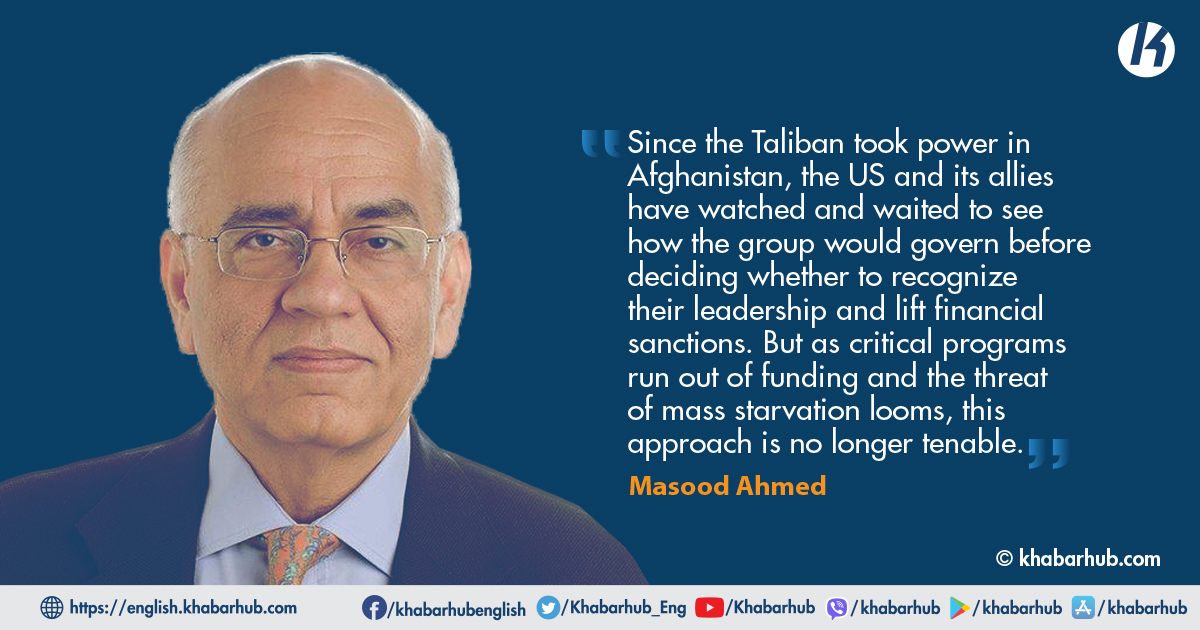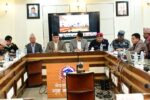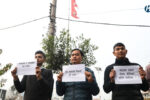The Afghan economy is in free fall. Public-sector employees –teachers, health-care workers, bureaucrats, police – are not being paid, the currency has lost a fifth of its value, and shortages of food, medicines, and everyday products are growing. Even when these items are available, many households cannot afford to buy them.
It was inevitable that the country’s takeover by the Taliban and the withdrawal of American and allied forces would leave most Afghans economically worse off and personally less free. Still, few anticipated the speed and scale of the humanitarian catastrophe now taking shape.
While the international community decides how to calibrate its response – or if it should respond at all – life in Afghanistan is becoming more difficult.
Aid flows, which financed 75% of the country’s national budget before the Taliban seized power, have mostly dried up.
The International Monetary Fund and the World Bank have halted their substantial funding. Afghanistan’s $7 billion of reserves in the United States have been frozen by President Joe Biden’s administration. And fear of violating sanctions has stopped banks and businesses from engaging even in permitted activities.
In addition, education and health programs risk closure – not because of decisions by the new government, but because they have no money. This, too reflects the international community’s indecision about how best to approach Afghanistan under the Taliban.
On one side, there are calls to respond urgently to the humanitarian crisis and continue to work to preserve the gains of the past two decades in human development, especially for women and girls.
Careful, considered work to loosen financial restrictions needs to start now, taking into account some consequential trade-offs. Two actions could provide near-term, targeted relief.
For this to happen, aid and trade need to keep flowing, and the international community must engage with the country’s new leaders.
A small subset of this group would go further, arguing that the international community must accept the reality of the new government and work with it more broadly, just as it does with many other governments that represent objectionable policies and behavior.
On the other side are those who start from the premise that Afghanistan is now ruled by a party that has taken power by force.
Moreover, the Taliban’s values and policies are fundamentally at odds with what the international community has promoted for the last two decades, and its early actions hold little promise of a smooth future relationship.
For this camp, any action that helps bolster the popularity or effectiveness of the Taliban’s government, even as a collateral effect, crosses a red line.
Those who are reluctant to provide aid want to be sure that any funds given to Afghanistan are not diverted to general expenditures that strengthen the new government.
They also want to ensure that easing access to funding is matched by positive actions from the Afghan leadership. These are valid points, but they will not convince the 23 million Afghans at risk of starvation as the harsh winter approaches.
As images of widespread hunger force Afghanistan back into the global spotlight, the calls to increase financial support will be hard to resist.
Those calls will be stronger if even a small fraction of desperate Afghans vote with their feet and trigger a new, massive refugee crisis.
For some perspective, consider that nearly a third of Syria’s pre-civil war population of 20 million became refugees, with an additional third internally displaced. Afghanistan’s population is close to 40 million.
The consequences of an imploding Afghanistan, with or without Taliban leadership, will not be contained within the country’s insecure and porous borders.
At a minimum, Afghanistan’s neighbors will feel the effects of its economic, security, and humanitarian crises – and they are not well positioned to manage these challenges.
When faced with difficult choices, there is a natural tendency to delay. These targeted measures will, of course, attract criticism from both those who think they fall short and those who believe they go too far.
Careful, considered work to loosen financial restrictions needs to start now, taking into account some consequential trade-offs. Two actions could provide near-term, targeted relief.
First, the US Treasury needs to clarify the scope and operation of financial sanctions for humanitarian and development work and to broaden the range of permitted activities.
The Treasury should apply to Afghanistan the lessons from its own review of sanctions programs, which calls for greater precision and better targeting to avoid unintended consequences for civilian populations.
Second, the international community should allow a limited, monitored release of Afghanistan’s frozen reserves to pay for essential imports of food, fuel, and medicine. Access could start small and be audited independently, with an option to terminate in the event of misuse.
Both of these proposals can be implemented relatively quickly, and both have recent precedents – specifically, in relations with Venezuela and Yemen.
When faced with difficult choices, there is a natural tendency to delay. These targeted measures will, of course, attract criticism from both those who think they fall short and those who believe they go too far.
But opting for a middle path now is unambiguously better than delaying a decision in the hope that a more attractive option will emerge.
(Masood Ahmed, a former senior official at the International Monetary Fund and the World Bank, is President of the Center for Global Development)
Copyright: Project Syndicate









Comment